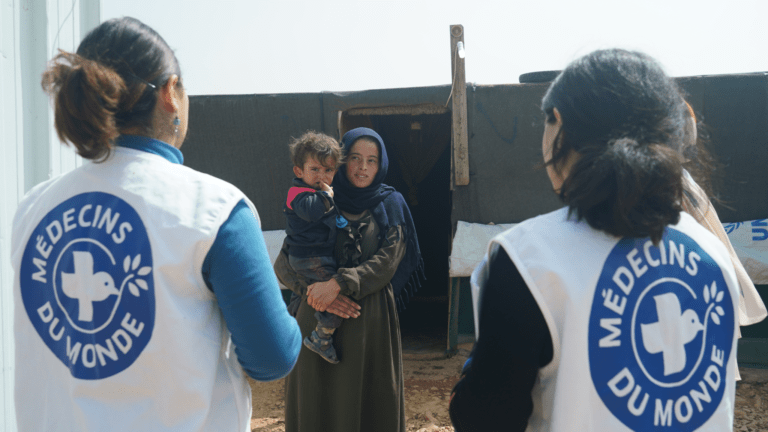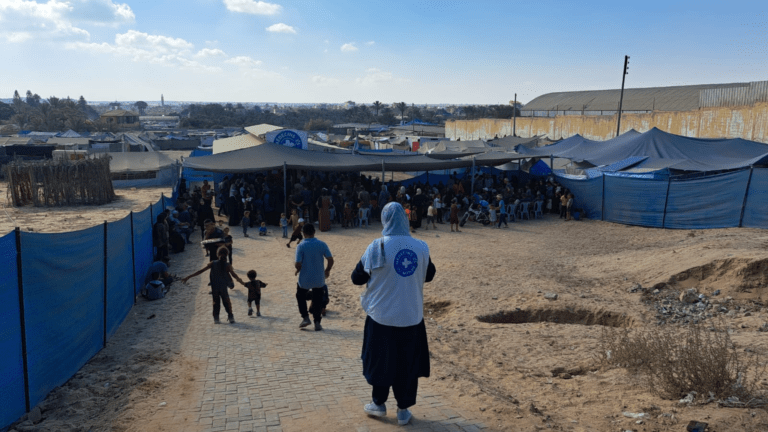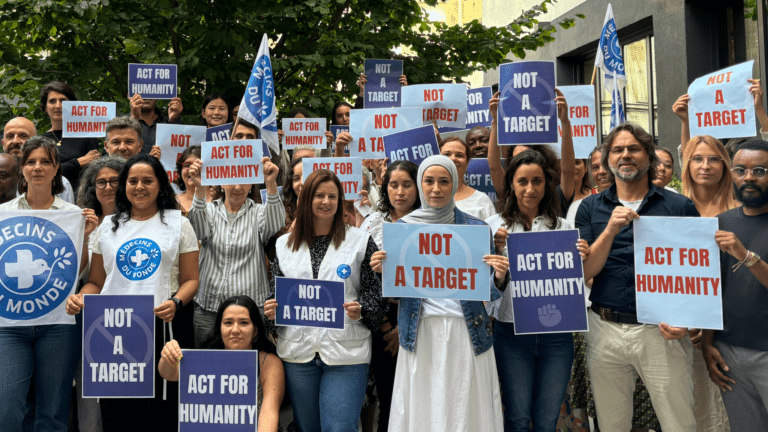The mental health impact of the war in the Gaza Strip
2023-11-24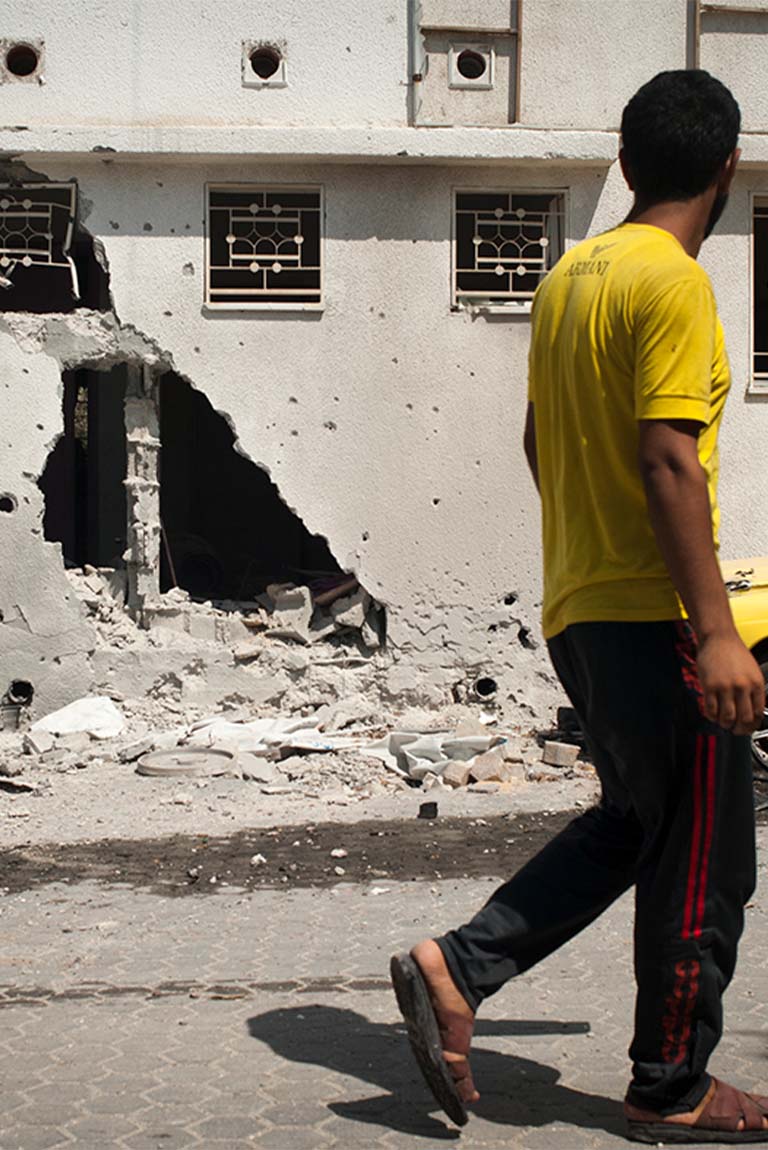
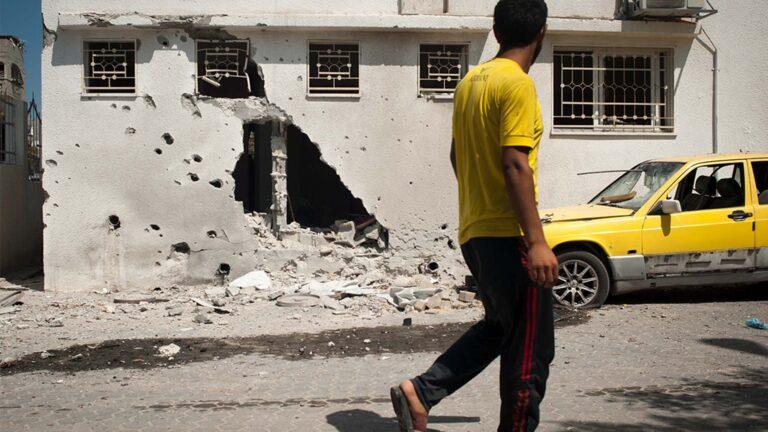
© Sacha Petryszyn
The ongoing intense bombardment across the Gaza Strip is causing widespread destruction to civilian life and infrastructure, resulting in immense physical and psychological suffering, including the displacement of at least 1.5 million Palestinians from their homes.
The siege imposed by Israel is further immiserating life for the entirety of Gaza’s 2.2m population, while the trickle of aid entering the strip remains wholly inadequate. Some 12,000 Palestinians have now reportedly been killed, including 4,700 children, and more than 29,000 people injured.
Since the 7th of October, there has been no access to education and a safe place for more than 625,000 students in Gaza, and based on PCBS and confirmed numbers by MoE, as of the 11th of November, more than 4,613 students and 403 teachers were injured. In addition, reports as of 13th of November state that 300 school buildings sustained damages representing more than 61% of all school buildings in Gaza, which increases vulnerability to psychological suffering and emphasizes the need for scale up the MHPSS response by all partners. Thousands of people remain unaccounted for, they are presumed to be under the rubble. The issue of missing persons and the inability to rescue and treat the injured and provide a dignified burial for the dead further compounds the psychosocial distress of the population.
The ‘Mental Health Psychosocial Support’ (MHPSS) partners are horrified by the devastating impact of the ongoing bombardments and are determined to scale-up the mental health and psychosocial response the population urgently needs. Children in Gaza have been exposed to violence, loss of loved ones, death, and fear. They have witnessed the destruction of their homes, schools, and communities, leaving deep psychological scars. Addressing their needs and ensuring they receive specialized care and support is imperative. Vulnerable populations, including women, the elderly, and people with disabilities, are also at higher risk and require tailored MHPSS services.
Even before the current crisis Palestine had one of the highest levels of mental health issues and psychological disorders in the eastern Mediterranean region. Some 543,000 children were already in need of MHPSS services, and two-thirds of the population were showing signs of psychological distress. It is expected that as the war continues, those numbers will grow exponentially, and every child will need mental health support. This crisis extends to the mental health providers too – carers who are part of Gazan society and are directly impacted themselves.
The current war in Gaza has created a mental health crisis of unprecedented magnitude. To prevent long-lasting trauma, it is essential to provide a comprehensive humanitarian response, including evidence based psychological interventions. MHPSS is not a luxury. It is a critical element of humanitarian emergency response. Access to adequate mental health care is essential for the well-being and resilience of individuals and communities. Mental health is a fundamental human right and we call for all parties to the conflict, the international community and global mental health organizations to secure:
- An immediate humanitarian ceasefire
- Safe, unimpeded, and unrestricted entry of electricity, fuel, water, food, and other humanitarian necessities.
- Action to break the horrific cycle of violence and living conditions devastating child lives inside the Gaza Strip.
- Prioritize mental health and psychosocial support as a critical component of humanitarian assistance in Gaza.
The people of Gaza deserve the opportunity to heal, rebuild, and look toward a future free from the scars of war. Our collective responsibility is to ensure that mental health and psychosocial support become an integral part of this process.











